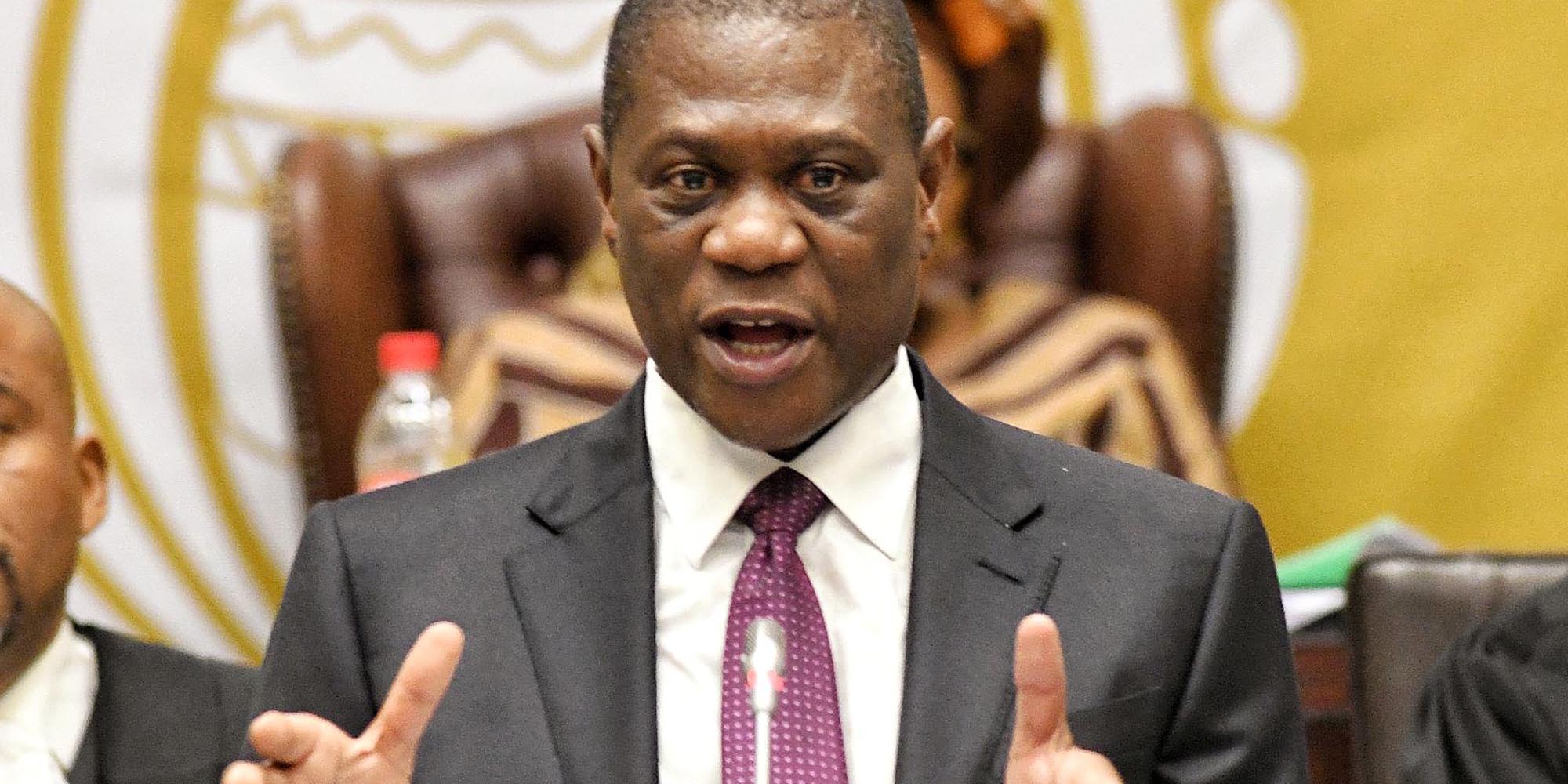The thing about parliamentary question sessions is that after the primary one for which responses can be prepped and scripted, the supplementary questions can’t be anticipated. But it’s in the answers to those pesky follow-ups – from the opposition, not the sweetheart ANC ones – that a politician’s mettle is tested.
All went smoothly, per script and firmly politically managed by the political old hand that is Deputy President Paul Mashatile, even on the EFF’s question about President Cyril Ramaphosa’s dollar-stuffed sofa on his Phala Phala farm. The Deputy President sidestepped it with a call to MPs not to be impatient and to allow all investigations to finish.
“The President is not interfering,” he said.
But then DA Chief Whip Siviwe Gwarube asked why the ANC keeps on using its majority in the House to shield the President and to defeat ad hoc inquiries into the Phala Phala farm forex saga – as it did on Wednesday again.
Read more in Daily Maverick: Phala Phala down: ANC foils parliamentary probe into Ramaphosa scandal despite united opposition
This rendered Parliament “toothless”, said Gwarube, adding that Parliament didn’t have to wait for other institutions to finish their work before acting within its constitutional mandate.
“What... do you say about Parliament’s role in terms of investigating the President in spite of the fact that there are concurrent investigations taking place. What of our constitutional obligations?” asked Gwarube of Mashatile as leader of government business, or the liaison between the executive and national legislature.
“I think that’s how democracy works, the majority must have its way... Democracy works that way. Maybe when you have an opportunity to govern you understand,” replied Mashatile, to interjections that the DA governs in the Western Cape.
“When the ANC believes its course is correct it will use its majority to push those decisions... Remember that winning positions and decisions is something you win out there during the elections. So, when you campaign and you win, you already win here [in Parliament]. If you lose there [in elections], you have already lost here.
“It’s democracy. It works like that all over the world,” said Mashatile.
“Let’s allow the National Assembly to be able to take decisions in a democratic way. And democracy means majority rules.”
ANC’s fault lines
This response highlights the governing ANC’s fault lines – the presidential untouchability, the closing of ranks under pressure, and majoritarianism as a backstop for decision-making amid declining public trust and confidence.
The ANC’s turn to majoritarian democracy resurged in the Jacob Zuma presidency. It was not the defining feature of the Mandela presidency, or the democratic transition and Constitution-making where substantive negotiations towards mutually agreed compromises gained South Africa world recognition and appreciation.
And majoritarianism is not the way of democracy the world over, as Mashatile had claimed.
In Nordic countries and much of Europe, coalitions in some shape or form are the governments of the day. And even the UK’s Westminster system of governing is moderated as MPs are elected from constituencies – just ask ex-prime minister Boris Johnson who lost his job in the Tory backbencher revolt.
The ANC’s focus on majoritarianism and control of the levers of state, as its phraseology goes, includes a willingness to haggle over positions for power, as is playing out in various councils and the metros of Nelson Mandela Bay, Johannesburg, Ekurhuleni and Tshwane.
Mashatile’s “democracy means majority rules” reply was blunter than his earlier response to an equally pesky question from IFP Chief Whip Narend Singh on the need for an oversight committee for the Presidency.
Right now, Parliament does not have such a committee; attempts years ago for the minister in the Presidency to account to the parliamentary public service and administration committee never really got off the ground.
But an oversight committee for the Presidency, which has seen a concentration of power from infrastructure and economic reform to intelligence, is one recommendation from the State Capture commission. Such a committee would be part of a host of measures aimed at improving Parliament’s fulfilment of its constitutional responsibility of oversight and holding to account the executive and state entities.
Read more in Daily Maverick: The (not) super DG as Presidency broadens reach across civil service
“Will you support the creation of a committee to oversee the President, Budget Vote One, here in the national Parliament because it’s part of accountability and oversight?” asked Singh, having pointed out how Mashatile as Gauteng premier reported to a provincial legislature oversight committee.
“I think, for now, the mechanisms to hold the President accountable are adequate. Opposition parties know the President comes here to answer questions. He’s really at your disposal to hold him accountable. I think let’s continue that way,” replied Mashatile.
On Thursday, he earned his keep as Ramaphosa’s deputy.
And with good grace, sparking chuckles among MPs on both sides of the House after a 53-minute delay when fire alarms were triggered by smoke from a broken light fixture in Office 31 at the Good Hope Centre where MPs were getting ready for the sitting.
Opening his maiden parliamentary question slot, Mashatile said, “Someone sent me a message from Johannesburg, ‘We hear that Paul is on fire in Cape Town’.” DM
South Africa
Accountability, what accountability? Democracy means majority rule, Paul Mashatile tells MPs





